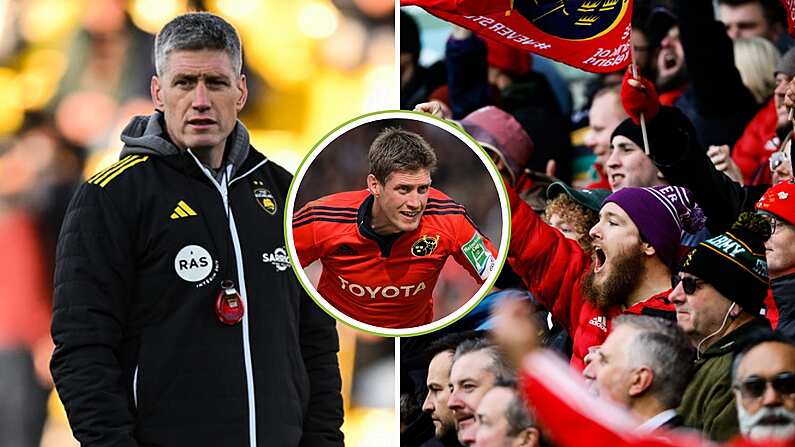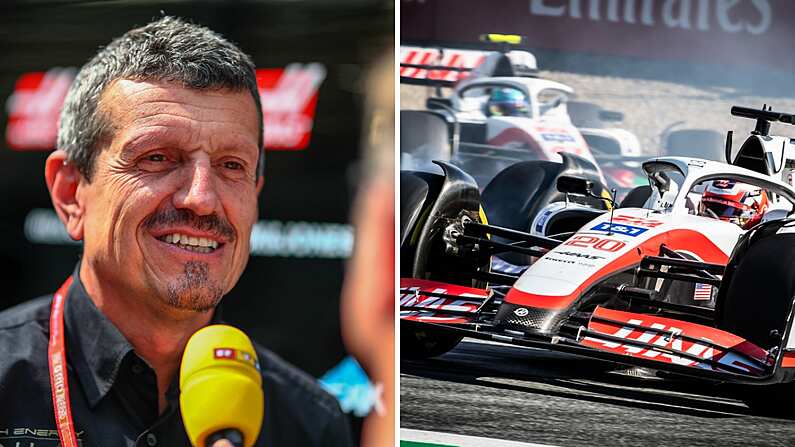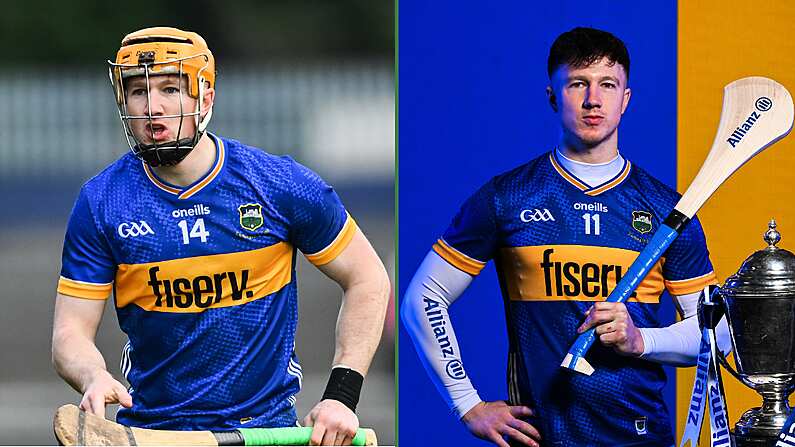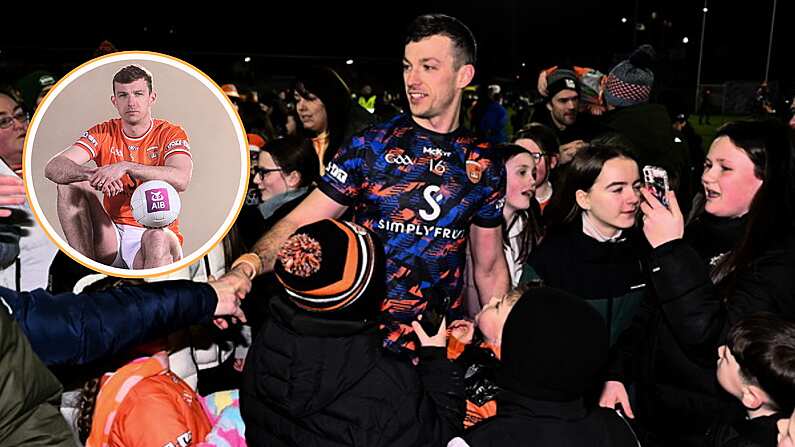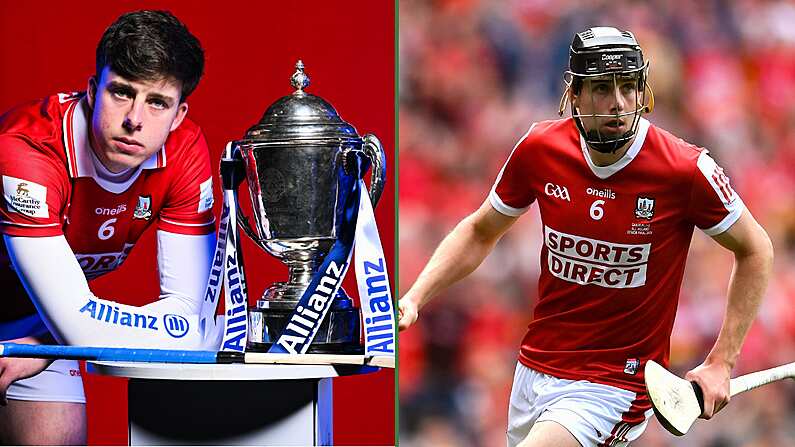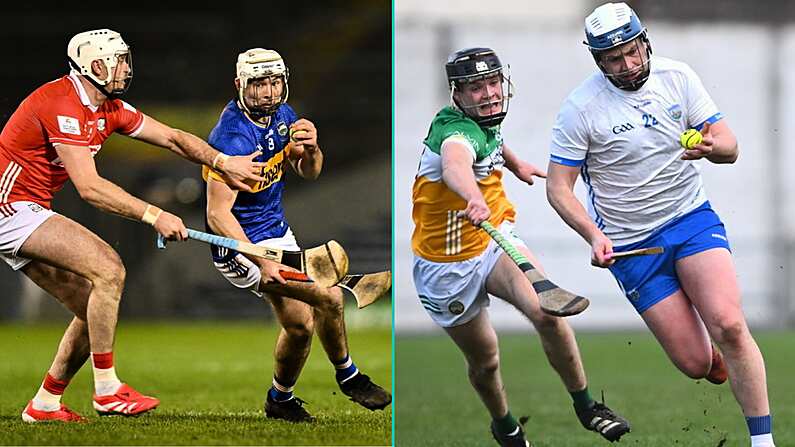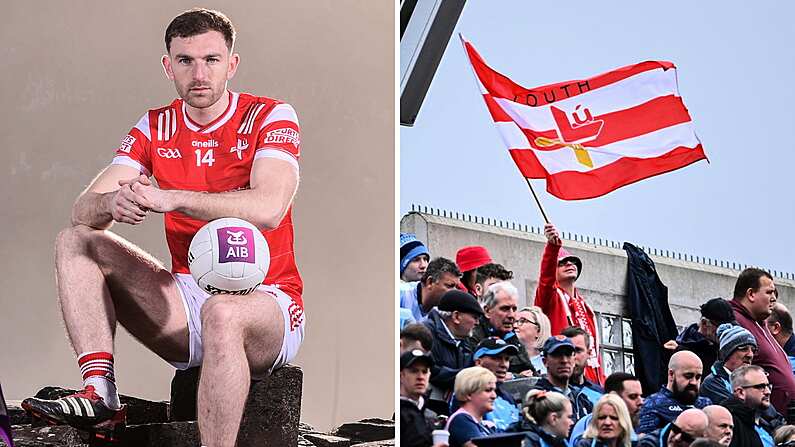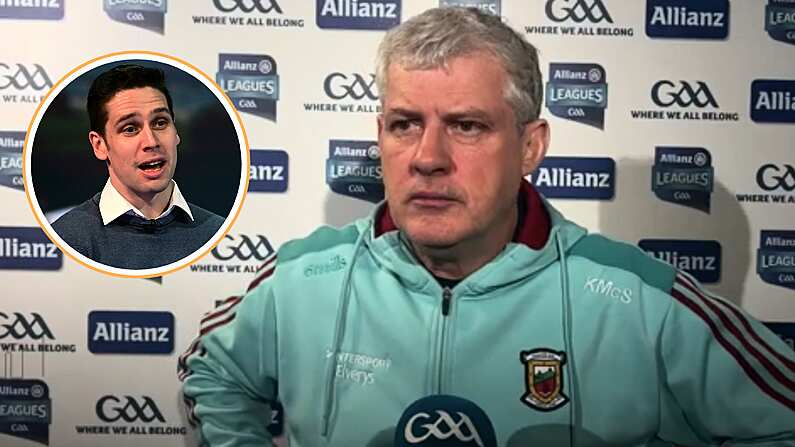Part of hit HBO series The Wire’s brilliance was its ability to deal with seemingly inconsequential issues and still deliver hard-hitting summations that transcend themes and time. This year has seen relentless pontificating about the state of Gaelic football and why it is so but ultimately, Cutty said it best: ‘The games done changed.’
Time waits for no man and the same is true for sport.
A brief look at modern-day Gaelic football shows a game that scarcely resembles the sport it was at the turn of the century. The rapid evolution has seen exponential increases in skill, athleticism, ability and understanding. The eternal battle between ideals and pragmatism has had its influence too. Such is sport. It does not run in a straight line, very little in life does.
In a bid to chart this complex progression, here is a comprehensive list of the most important match from every championship since 2001. It is imperative to clarify the most important is not the same thing as the best. Kerry’s stunning extra-time win over Mayo in the Gaelic Grounds was undoubtedly the best game of 2014, but Dublin’s defeat at the hands of Donegal was significantly more important for Gaelic football.
2001 is a good starting point because that championship saw the biggest change in over 100 years with the introduction of the All-Ireland qualifiers.
Essentially, it is a question of looking at this century and deciding what games had the greatest implications for the sport, its dynasties, tactics, evolution and importance. Not for the first time, it kicks off in Newbridge.
2001: Kildare 1-17 - 1-16 Donegal, Qualifier Round 2
Why it was important: 'The drug'
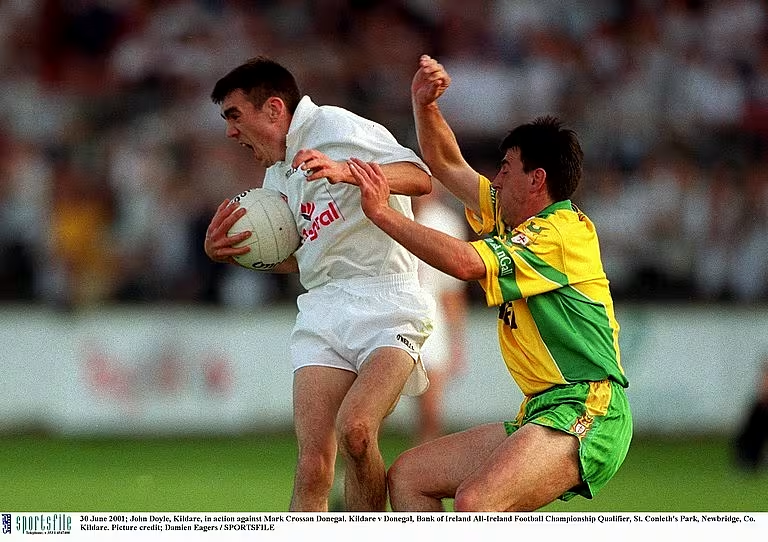
‘Championship Qualifier, Live Tonight, Sold Out!’ declared the Irish Times. “It was some day of football, wasn’t it?” said a relieved Mick O’Dwyer. A crowd of 13,000 packed into St Conleth's Park for a one-point thriller. Their delight was echoed by an astonished Pat Spillane on the Sunday Game; If this was what the qualifiers would be, let every game be like the qualifiers.
One of the finest to ever represent the Lilywhites was Johnny Doyle. His crucial influence helped Kildare recover from a horrendous start that saw them fall 1-5 to no score behind after fifteen minutes. In the last minute a point from his namesake, Ken Doyle proved the difference. Johnny laughs at the memory of it. However, it turns out that football is not the only craft he is skilled in, as his description when asked about that night gets to the heart of what it’s all about.
Ah look, the derby in the Curragh was on at the time. It was a piping hot day. I remember coming in through the town after we’d met up, there was just such a buzz. This was something I never experienced as a player. I’d never played a championship game in Newbridge, I was young and impressionable. Going in I was in awe really, from bringing my flag to games and cheering them on and all of a sudden, you’re on a team bus.
I had some success in my career, winning a Leinster was massive when we did it, but that game was it. When it wasn’t going too well you wanted to get it back for the huge crowd in Newbridge, they were the type… that is why you play the game. Only one team will win the All-Ireland and people say ‘sure, Kildare wouldn’t ever win it’ but it was nights like that. That was the drug. That kept you going back time and time again.
2002: Armagh 2-13 - 0-16 Tyrone, Ulster Quarter-Final Replay
Why it was important: The North dawns

The defending Ulster champions were dumped out in the early stages. This game sent Tyrone on a journey through the qualifiers which ultimately ended with a shock defeat against Sligo. In search of a remedy, the Red Hand turned to a skilled underage coach to take the helm. Up stepped Mickey Harte and a dynasty was forged from those embers.
Meanwhile, for Armagh, it was vindication that the appointment of Joe Kernan at the end of 2001 was the right decision. On a May day in St Tiernach’s Park, the seeds for September success were sown.
2003: Tyrone 0-13 - 0-6 Kerry, All-Ireland Semi-Final
2003: Tormented

“It’s like rugby! They are all over the place, chasing like a pack… Kerry are well and truly trounced,” Ger Canning.
“The midfield area was like New York City, walking down Times Square,” Seamus Moynihan.
“The game was only underway for a minute or two, when I and every other Kerry player that understood that something different was happening!” Dara Ó Cinnéide.
“When your opponent doesn’t expect it, the results can be devastating… the one scene that was deemed to epitomise the game was the sight of Darragh Ó Sé in possession, hounded into distraction by a pack of Tyrone players. In the end, Darragh just hacked it away. It was the action of a tormented man.” Mickey Harte.
“Puke football,” Pat Spillane.
For better or for worse, Gaelic football would never be the same again.
2004: Westmeath 0-14 - 0-12 Dublin, Leinster Quarter-Final
Why it was important: Cute Kerryman

2003 was the demise of Páidí Ó Sé’s reign in the kingdom. In 2004 he enjoyed one final hurrah. In search of Westmeath’s first ever Leinster Championship, they met the powerhouse of Dublin. This is a game of a bygone era when the provincial Championships still held weight and romance was rife.

The backdrop to the game was as dramatic as the action. Westmeath beat Offaly for the first time in 55 years, but it came at a price. All-star Rory O’Connell was sent off for an alleged stamp and Páidí Ó Sé was adamant they would not accept the three-month ban. Westmeath’s appeal was denied and thus the businessmen of Athlone and Mullingar pooled together to finance a High Court bid. Then Director General Liam Mulvihill outlined in an affidavit the case against O’Connell. There was an acceptance an incident occurred but the referee’s report explicitly stated ‘stamp.’
He missed the Dublin game but was granted an injunction for the subsequent Leinster final. A long and murky appeals process was exposed, setting a dangerous precedent. That game and indeed season would later become iconic thanks to RTE’s 'Marooned' documentary. For Dublin, that dark day heralded the end of Tommy Lyons and so began the era of Pillar Caffrey.
2005: Tyrone 1-13 - 1-12 Armagh, All-Ireland Semi-Final
Why it was important: The trilogy

The final leg of an epic trilogy. Armagh had won the Ulster Championship after a replay in a game that saw Peter Canavan sent off a minute after he was brought on. Come the semi-final, his injury-time free-kick proved the sweetest revenge of all.
As for Armagh, with the game in the melting pot, Joe Kernan looked to his bench and introduced Enda McNulty for his talisman, Kieran McGeeney. The formidable aura absconded as the Red Hand loomed. A year later Kernan was gone, with ‘Geezer’ soon to follow.
2006: Kerry 4-11 - 1-11 Longford, Qualifier Round 4
Why it was important: Star

The Irish Examiner’s match report from this game spoke volumes about this game's significance. Simply headlined; ‘A Star Is Born.’
In his autobiography, Keys to the Kingdom, Jack O’Connor wrote of an exchange he had with one of his players at the start of the year. He confronted a young midfielder on the fringes of the squad: "You're fucking around in this panel for two years, getting bits and pieces. You're half this and half the other."
A Munster Championship knock-out sent Kerry spiralling to the qualifiers amidst a "whirlwind of rumours and negativity." Then O'Connor had a marvel idea, the midfielder would become the target man.
It was trialled in training. Kieran Donaghy was asked to stand in full-forward and gave Marc O Se a roasting. “A night or two later, the full-forward thing isn’t just an idea, it’s the whole future," wrote O'Connor.
For Donaghy, this was his arrival on the big stage, in every sense. After that Longford game, he immediately asked for a sponsored car and his wish was granted after the quarter-final victory over Armagh in the form of a Volvo S40. A sporting and commercial star who set a template that Kerry’s rivals would soon try and imitate; Cork with Michael Cussen, Dublin with Eoghan O’Gara.
12 years later in Clones, the ploy still proved successful when a ball rained down from the sky and met the paw of a Star, who shifted it off to David Clifford to ignite the 2018 Super 8s. A figurative and literal passing of the torch.
Kieran Donaghy, never doing things by half again.
2007: Kerry 3-13 - 1-09 Cork, All-Ireland Final
Why it was important: Rebellion

It is somewhat underappreciated just how often these Munster rivals faced each other in Croke Park. Between 2002-2009, there were an extraordinary seven battles at HQ. But 2007's result had ramifications far beyond that age-old duel.
After the humbling defeat, Cork manager Billy Morgan resigned. In the search for a successor, the Cork county board implemented a policy whereby a manager could not pick his own backroom team. The senior hurling and football panels went on strike and the county was thrown into turmoil. Roy Keane annouced it was similar to 2002, Cork's very own Saipan. It was the first time in the history of the Gaelic Athletic Association that a strike ensured games were not played and resulted in the Taoiseach, Bertie Ahern publicly calling for a resolution. One was eventually reached, with Conor Counihan taking the mantle.
2008: Tyrone 0-13 - 1-09 Mayo, Qualifier Round 3
Why it was important: The rally

"The old order is finally showing signs of wilting" reported the Irish Times, post-Tyrone's first-round replay defeat at the hands of Down. Speaking now, a refreshingly honest Enda McGinley admits this sense transmitted into his own consciousness.
The doubt, it was palpable. To be honest you can’t completely deny that to yourself. As a team, you are thinking 'maybe we are gone.' Maybe we won't fully get back up. What assurances have you had? I remember being on the bus outside Newry after the Down game as the crowd trailed away. I was chatting to Philly Jordan and we were just saying that if it is going to be the end of this team, at the very least we owe it to ourselves to have one last final crack at it. There was that sentiment, that maybe things were coming to an end.
Enter Mickey Harte, once again rallying his troops and driving them on to a third All-Ireland: "He never had any doubts at all that we would be challenging for an All-Ireland. Gradually that belief then rubbed into the rest of us. To go on and win an All-Ireland. That is Mickey Harte."
The Mayo game was the big one. It was misread by the pundits out there... We didn't really get any credit at all for it but as a team, we were delighted for that. It left us in a perfect situation coming in against Dublin.
2009: Kerry 1-24 - 1-09 Dublin, All-Ireland Quarter-Final
Why it was important: Kingdom come

Jack O'Connor returned to the helm to dish out an utter humiliation in a quarter-final, Dublin's worst ever defeat at the hands of Kerry. One last blow before the dynamics of the big two shifted. Kerry have not beaten them in Championship since.
2010: Meath 1-12 - 1-10 Louth, Leinster Final
Why it was important: Shattered dreams

A landmark moment for the association. The minnows of Louth were on the verge of ending a 57-year wait for silverware until a decisive Joe Sheridan intervention. He carried the ball over the line, but following a brief consultation with an umpire the referee Martin Sludden allowed it and Croke Park erupted, with the fragments soon to come cascading down onto the pitch.
Irate Louth fans stormed the field and barged the referee, until a Garda escort rescued him. Meath sub Mark Ward was struck by a Louth fan and in the days that followed the Meath county board refused to offer a replay. GAA President Christy Cooney said the events were a "watershed" and promised life bans for the invaders. Sludden only officiated in two games in 2011 and in 2012 he was cut.
However, even those ramifications couldn’t escape the sheer hollowness of what happened that day. This was little old Louth, in a Leinster Final. A division three team, a team pummelled by Dublin in ’08 and knocked out by Tipperary in ’09, in a Leinster Final! A time of grave joy for the underdog. Sligo in a Connacht final, Limerick in a Munster. And they all lost. Sligo by a point, Limerick by a goal. Louth by a feckin' try. Louth brought it home. The injustice was monstrous. Romance had been rife and within two weeks it was dead.
2011: Dublin 0-08 - 0-06 Donegal, All-Ireland Semi-Final
Why it was important: The message

This article was inspired by a book by American Journalist Shea Serrano. His exceptional novel ‘The Rap Year Book’, identifies the most important rap song every year from 1979 to 2014. One of the most crucial chapters of all was 1982 with Grandmaster Flash and the Furious Five's track 'The Message.' This was the moment rap evolved from being about groove, dancing and jazzy sensations to gain a social conscience. No one knew you could do it like this, to be as serious as they were. Rap followed their lead and evolved to become a poignant medium for social commentary.
Dublin vs Donegal had precisely the same effect on the game in 2011. After 20 minutes, the jeers began. Come the hour mark, Dublin had still not scored from play. This was a landmark moment in Gaelic football. No one had done this before. Jim McGuinness's Donegal seemed entirely unconcerned with the ball but determined without it. It was the origins of a tactical philosophy that continues to unsettle the sport. It shook the game to its very foundations and struck a warning for what was to come in 2014.
2012: Donegal 0-16 - 1-12 Cork, All-Ireland Semi-Final
Why it was important: Shifting status quo

Between 2002 and 2011, there were just four counties appearing in more than one All-Ireland final: Kerry, Tyrone, Armagh, and Cork. 2012 saw a definite changing of the guard, Donegal went on to win an All-Ireland that year and make the final in 2014, and Cork never made an All-Ireland semi-final again.
"Them or us. Cork are going to want this bad... All-Ireland champions in 2010 and favourites to win it this year. One shot. A moment in our life that would not come around again. Studying every DVD late at night, taking notes, reading newspaper interviews for anything. Thinking about Cork." Jim McGuinness, Until Victory Always, A Memoir.
It became apparent that this Donegal team had evolved beyond the conservatism of 2011. Karl Lacey and Frank McGlynn drove forward with almighty persistence. Donegal had overcome both of Munster's kingpins, having beaten Kerry in the Quarter-Final. Cork waned towards the ordinary.
2013: Dublin 2-12 – 1-14 Mayo, All Ireland Final
Why it was important: Heartbreak

Dublin's claim to the best team of the decade is assured regardless of Sunday, but Mayo's perpetual ability to come again and again ensures them their own place in history. 2013 was the first time they turned up in an All-Ireland final after the previous year's slow start and 2006's blow-out.
Dublin brought the competency to rule this era, but Mayo brought the fight to make it captivating.
2014: Donegal 3-14 – 0-17 Dublin, All-Ireland Semi-Final
Why it was important: Evolve

"The unbeatable team has been beaten! The All-Ireland Champions are out! Knocked out by Donegal, a tactical masterclass by the great Jim McGuinness," proclaimed an incredulous Darragh Maloney on commentary, as he sought to come to terms with the seismic result and most important game of the decade.
Eamonn McGee played his part in that historic tie, as selector John Duffy embraced him and supports swarmed the field, the significance of that day quickly dawned on him. "We knew when the final whistle went we had done something amazing but in term of the years ahead, no. We just focused on that one game. We knew the task ahead was massive but not what would happen afterwards and that Dublin would evolve into something better and far harder to beat."
Jim Gavin evolved, his team did too. They haven't lost a championship game since.
2015: Kerry 2-15 – 3-12 Cork, Munster Final
Why it was important: Compulsion

On a glorious summer day, with the sun beaming down over the Macgillycuddy Reeks and heat rising through the ridged Michael O'Connor terrace, Fionn Fitzgerald's stunning 72-minute point/jammy over-hit pass was not just the end of a thrilling Munster championship final. It was the beginning of the end for Brian Cuthbert and indeed the Munster Championship as a whole.
2016: Dublin 0-22 - 2-14 Kerry, All-Ireland Semi-Final
Why it was important: Mortality

Two teams stood shoulder-to-shoulder at the brink and the fear was palpable. The consistently peerless Stephen Cluxton malfunctioned, landing a kick-out down David Moran's throat and sent writhing into his own net moments later.
The historically lockbolt-tight Marc Ó Sé was introduced to counter Dublin's starstudded substitutions and struggled to lay a glove on Eoghan O'Gara as he kicked his county into the lead. Ó Sé would never don the green and gold again, with another legend of that era in Aidan O'Mahony following him out shortly after.
2017: Dublin 1-17 – 1-16 Mayo, All-Ireland Final
Why it was important: The business

A whole new system, the rise and fall of dynasties in the North, the Kingdom coming and going, Maurice Fitzgerald's point, Peter Canavan's goal, Kieran Donaghy's rant and Joe Sheridan's try. What do you give the century that had everything? You give it the 2017 All-Ireland final.
2018: Kildare 0-21 - 0-19 Mayo, Qualifier Round 3
Why it was important: Disconnect

Purely as a result, this was the end of Stephen Rochford and the saving of Cian O'Neill. Yet for the association, it should be a far more seismic event. This round three qualifier should be a catalyst for major change and recognition of unquestionable failures.
The disconnect between the GAA and its members was never as apparent as in 2018. A policy of short-term appeasement and subdued back peddling will no longer cut it. Reform is in order and the GAA's eventual concession to allow Kildare play Mayo in Newbridge was a small but potentially valuable first step towards recognising that. The game's done changed, the administrators must too.




